Is Seattle implementing Rainwater Collection as part of its Stormwater Management Program (SWMP)?
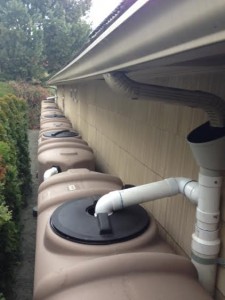 SWMP applies to the municipal separate storm sewers owned and operated by the city. SWMP address the National Pollution Discharge Elimination System (NPDES) and is permitted by ecology. Seattle Public Utilities (SPU) is the lead city department responsible for implementing permit coordination in SWMP.
SWMP applies to the municipal separate storm sewers owned and operated by the city. SWMP address the National Pollution Discharge Elimination System (NPDES) and is permitted by ecology. Seattle Public Utilities (SPU) is the lead city department responsible for implementing permit coordination in SWMP.
“The City of Seattle is required to develop, implement and enforce a program to prevent and control the impact of stormwater runoff from new development, redevelopment and construction site activities.” (SWMP Jan. 2015)
Part of the “minimum performance requirements” of SWMP is to “incorporate and require Low Impact Development (LID) principles and its Best Management Practices (BMPs).” The Green Stormwater Infrastructure (GSI) is part of the stormwater code and requires that any new construction, commercial or residential, infiltrate runoff. SPU’s “Rainwise Program” offers education to the general public on infiltration of stormwater and rebates of implementation as long as requirements are met.
The city of Seattle Health Department allows rainwater collection for non-potable and potable use.
Unfortunately SWMP does very little to encourage rainwater collection, even though it is promoted by Ecology. The Rainwise Program addresses infiltration, not use of a rainwater system, while rainwater collection and its use offers more advantages than simply infiltrating. The use of collected rainwater for toilet flushing, laundry, and when properly filtered and disinfected, potable use, not only helps mitigate roof runoff, but helps supplement our water supplies.
The demands of our water supplies nationwide are becoming strained and will continue as population growth continues. Costs of expanding and upgrading current water infrastructure will cost billions locally in the next 20 years, while a more proactive approach of a supplemental, decentralized water system addresses both issues of stormwater and water demands while keeping costs down.
While Seattle is addressing stormwater runoff, they are missing the boat on rainwater collection promotion. More information and comments to Seattle City Council links are provided below.
For More Information
- City Council: http://www.seattle.gov/council/councilcontact.htm , or via email: budget@seattle.gov , or call Council reception at (206) 684-8888
- Stormwater Code information on DPD website: http://www.seattle.gov/dpd/codesrules/codes/stormwater/
- For general questions about SWMP or more information, email swmp@seattle.gov or visit: http://www.seattle.gov/util/myservices/drainagesewer/aboutthedrainagesewersystem/stormwatermanagementplan/

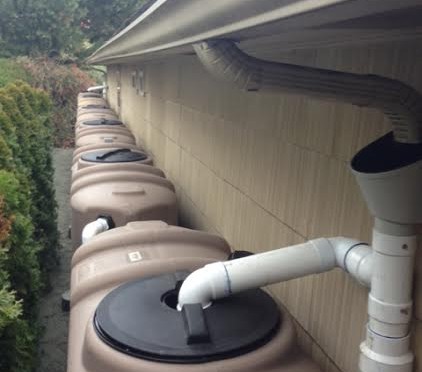
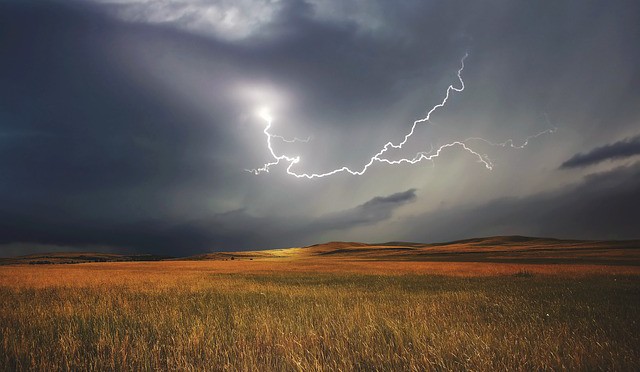
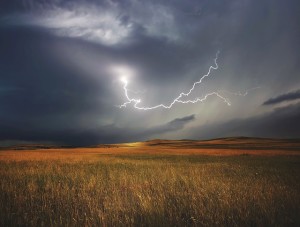 Scenario: you finally come to the awareness that collecting rainwater is a good way to conserve well or city water and a sustainable way to water your garden. So, you set up a barrel to capture rain for use in plant watering. Great idea – right? Wrong. If you live in Colorado, where someone else owns the clouds, you might just be an outlaw!
Scenario: you finally come to the awareness that collecting rainwater is a good way to conserve well or city water and a sustainable way to water your garden. So, you set up a barrel to capture rain for use in plant watering. Great idea – right? Wrong. If you live in Colorado, where someone else owns the clouds, you might just be an outlaw!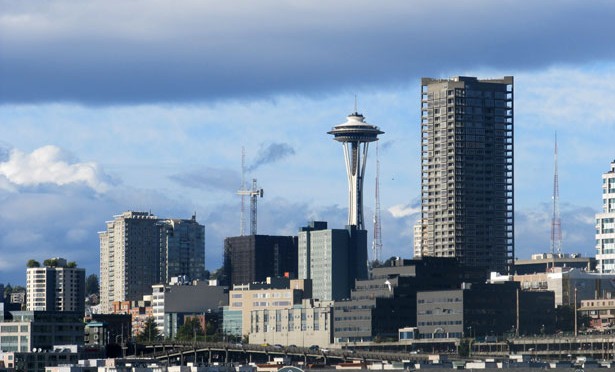
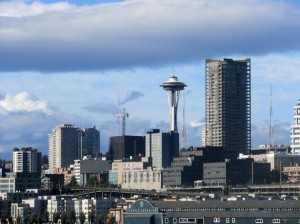 Does Seattle allow rainwater collected from the roof to be used for drinking water?
Does Seattle allow rainwater collected from the roof to be used for drinking water?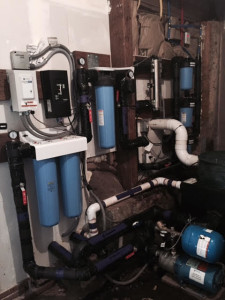 A typical filtration/ disinfection system consists of a sediment filter, activated carbon, and ultra violet light and is adequate for achieving potable standards. Adding a 1-micron absolute sediment filter before the UV adds a higher level of endurance of cyst removal. Other possible contaminants can be identified by testing “raw water” before the filtration train and then can be removed by additional filtration. The last device should be an ultra violet light, which must carry a “class A” rating.
A typical filtration/ disinfection system consists of a sediment filter, activated carbon, and ultra violet light and is adequate for achieving potable standards. Adding a 1-micron absolute sediment filter before the UV adds a higher level of endurance of cyst removal. Other possible contaminants can be identified by testing “raw water” before the filtration train and then can be removed by additional filtration. The last device should be an ultra violet light, which must carry a “class A” rating.